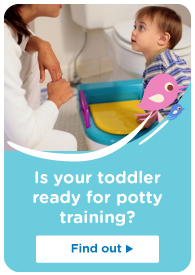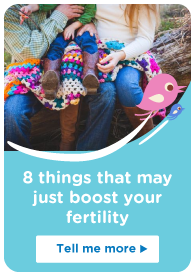We kiss each other hello and we kiss each other goodnight - we all enjoy a few cuddles every now and again. However, it has been claimed that forcing your little ones to give their relatives a peck on the cheek could have harmful effects on their future. Co-ordinator of the Sex Education Forum, Lucy Emmerson, thinks that encouraging children to give kisses can give them a blurred vision about...
    |
Last updated: 08/01/2014
by
CatherineMom
|
No comments |




Many mums enjoy spoon-feeding their little ones. It gives them some alone time with their baby and a chance to bond. However, professionals think that this style of feeding could have harmful effects on youngsters. According to a recent study led by Dr Brown and Michelle Lee from a leading UK university, spoon-fed children are more likely to become overweight compared with those who feed...
    |
Last updated: 08/01/2014
by
CatherineMom
|
No comments |




Weight problems, finances and debt are all at a high right now, so it’s no surprise that people are feeling particularly down around this time of year. Research shows that today, also known as Blue Monday, is supposedly the worse day of the year. For your little ones, it may mean that fail resolutions for the new year are starting to take it's toll. For couples, today is the most popular day...
    |
Last updated: 06/01/2014
by
CatherineMom
|
No comments |




There has been a huge improvement in results for students in disadvantaged primary schools. New data from the Department of Education found that children in Delivering Equality Schools (DEIS), are performing better in maths and reading than they did six years ago. According to a new report, gains are especially evident among students in junior classes, with their attendance levels improving...
    |
Last updated: 19/12/2013
by
CatherineMom
|
No comments |




The ISPCC’s Leanbh service wants people in Dublin to report children who beg on the streets. The society’s service even wants those who come across young children begging to go as far as contacting their out of hours service, if not the Gardaí. The aim is to reduce homelessness in Dublin and to help minority groups, particularly during this festive time of the year. Originally established in...
    |
Last updated: 17/12/2013
by
CatherineMom
|
No comments |




A study has found that the majority of parents regularly check their children’s online activity, despite how guilty it makes them feel. Alex Balan of internet safety firm, BullGuard, conducted a survey of 2,000 parents and found that six out of ten mums and dads confess to reading their youngsters' emails, texts and Facebook messages. As reported by the survey, one third of parents with...
    |
Last updated: 16/12/2013
by
CatherineMom
|
No comments |




According to a new UK poll, it seems it is not just students and young adults who binge drink as figures show that the problem extends to British mothers. The poll, which was commissioned by ITV’s This Morning, surveyed 1,000 mums with children under the age of 18. The results show that, of those surveyed, 28% admit to being drunk in front of their child with a quarter being so intoxicated they...
    |
Last updated: 13/12/2013
by
CatherineMom
|
No comments |




According to a recent study, teenagers whose parents threaten or shout at them are more likely to develop depression and disruptive behaviour. When the mother is both verbally and physically abusive and the father displays either of the forms of aggression, there is an increased risk of depression and poor behaviour in adolescents. Dr. Annette Mahoney, professor of psychology at Bowling Green...
    |
Last updated: 12/12/2013
by
CatherineMom
|
No comments |




New research has found that a father’s diet plays a critical role in the health of his children. According to the Canadian study, the sperm carries a “memory” of the dad’s lifestyle, which is transferred to his offspring. The research looked at the importance of folic acid in preventing brain and spine defects and while women are already advised to take supplements it looks like men may...
    |
Last updated: 11/12/2013
by
CatherineMom
|
No comments |




According to new research, first time mothers over the age of 30 are at a higher risk of having a stillborn child, small baby or premature birth. The study, conducted by Sweden’s Karolinska Institute, analysed almost 1 million first time mothers in Sweden and Norway between 1990 and 2010. It found that those who conceived for the first time between the ages of 30 and 34 are as likely to have...
    |
Last updated: 11/12/2013
by
CatherineMom
|
No comments |






























